Few would identify emotional outbursts as the quality to borrow from Garry Kasparov, but then Vassily Ivanchuk has always stood out from the crowd. In a long and fascinating interview he again displays the self-awareness and deliberate strategy that often lie behind his apparent eccentricities.
Vassily Ivanchuk seems to be as unpredictable an interview subject as he is a chess player. His responses can sometimes be little more than monosyllabic, but then occasionally he gives interviews like the one below (or the interview with Danilo Mokrik that I translated a couple of months ago).
This time he was talking to Elena Sadovnik for the Ukrainian Sport Express, not long after the Amber Chess Tournament in Monaco was over. As well as going into depth on a wide range of topics, the interview is also rare (or perhaps unique) for Ivanchuk’s second wife, Oksana, contributing a “chess wife’s” perspective on her husband.
The Russian original begins with a short biography and introduction that I’ve also produced below. As the text is long I’ve decided to publish it in two parts – the second should follow shortly.
Vassily Ivanchuk
He was born on 18 March, 1969 in Kopychyntsi, Ternopil Oblast (Ukraine). He’s a grandmaster and the winner of many prestigious international chess tournaments, including: M-Tel Masters (Sofia, 2008), Tal Memorial (Moscow, 2008), Kings Tournament (Bazna, 2009), FIDE Grand Prix stage (Jermuk, 2009), Amber Tournament (Nice, 2010), Capablanca Memorial (Havana, 2010), 9th Chess Festival (Gibraltar, 2011). He was FIDE World Championship runner-up in 2002 and European Champion in 2004. He won the Chess Olympiad in 2004 and 2010 and the World Team Championship in 2001 as part of the Ukrainian team.
Kasparov called him a genius, Anand – the most eccentric chess player in the world. After his brilliant victory in the supertournament in Linares at the end of the 80s, the figure of Vassily Ivanchuk was the focus of particular attention from the chess world: he was the one, according to all predictions, set to break the hegemony of the “two Ks” – Kasparov and Karpov – and become World Champion.
Those expectations were never to be fulfilled, but Ivanchuk himself is truly surprised when journalists ask him if he regrets it. He never counts his victories: “I like to analyse, play and train – “bookkeeping” is something I can leave to someone else”.
He’s so absorbed by creating “his” chess that he often leaves our everyday world for his own, lovingly-constructed internal world. Recently, at the presentation of Ivan Yaremko’s book, “100 Figures in Lviv Sport”, to which Ivanchuk was invited as one of the heroes, I saw a half-smile on his face, and his gaze fixed on empty space. It was only then that I realised why he’s called a genius. Despite not being a chess specialist I still asked the grandmaster for an interview: the temptation to open the door into a secret world was just too great. Ivanchuk’s wife, Oksana, also kept the conversation going.
You finished the Monaco tournament in fourth, which in sport is considered the most annoying position…
Really? Vassily Ivanchuk was surprised. But it doesn’t annoy me at all. I don’t consider myself one of those sportsmen for whom only first place exists, and anywhere else is nowhere. I fight for every half-point, even when it’s a struggle for, let’s say, sixth or seventh place. Of course, you always want to win, but giving up and playing half-heartedly when you see during a tournament that there’s no realistic chance of winning – that’s absurd.
But my colleagues, who know more about chess than I do, agree on one thing: when you’ve got no chance of winning you don’t play as sharply or take as many risks. Do you agree?
That’s a tricky question for me to answer. In general, only highly competent specialists are capable of such analysis, in my opinion. If someone’s a Class A chess player, then it’s unlikely he’ll be able to judge how sharply a grandmaster’s playing.
You began the event in Monte Carlo with unpleasant losses, but then managed to create a furore with a series of brilliant victories, after which you were predicted if not to win, then at least to claim second place. Why was it that towards the end you couldn’t hold onto a top-three place?
Ivanchuk beat Carlsen 2:0 for the second year running! | photo: Association Max Euwe, amberchess20.com
A great number of factors influence play, particularly when it’s blindfold. For example, the enormous stress on your eyes, or the speed with which you handle the computer mouse… When there are swings like that a chess player expends an enormous amount of nervous energy, so that by the end of the tournament it’s very hard to fight against the accumulated fatigue.
I KEEP MY DISTANCE FROM MY RIVALS
Sportsmen can roughly be divided into two categories. For some, the worse the better, meaning that unfavourable external conditions and fighting neck and neck increase their motivation. Others can only really express themselves under favourable conditions, when, despite everything, the players aren’t treading on each other’s heals. Which category would you put yourself in?
I prefer a golden mean i.e. there must be motivation, but if the will to win is excessive then it usually prevents me from producing my best form. When titles are being decided, important candidate tournaments held or a significant financial prize is at stake, it becomes much harder to play. For me personally, the game, the atmosphere at tournaments, and also just the very existence of chess in my life, are of enormous significance. Having said that, the result is no less important – victories, titles, my place on the rating list. People who say those aren’t important for me are mistaken. I’m a very ambitious person.
Who in the chess world, in your opinion, is the most ambitious?
In order to say that for certain it’s not enough to analyse the games played. You also need to get quite close to the player, to get to know him better by spending a lot of time together. I prefer, however, to keep a certain distance from my main rivals. That’s not an eccentricity or superstition. Given the extremely sharp struggle in our sport the tiniest details can be important. Therefore I don’t allow myself to be open with my competitors. Rivals, seeing my strong and weak points, will use that information in the struggle against me.
Other chess players sometimes spend time together, or even get together in chess partnerships where for a certain time they cooperate with each other. But, as a rule, that’s all short-lived, as over time personal ambitions gain the upper hand over the collective idea.
During games some players, while waiting for their opponent to move, get up from the table in order to walk around, to relax. Others hypnotise the board with their gaze, sitting practically motionless. What do you do while your opponent’s considering his move?
I definitely don’t stay in one spot for long. I get up – to walk around, look at the other games or go to the restroom to drink a cup of coffee. Sometimes, during such moments, I allow myself to relax a little – if I can foresee what my opponent’s going to do next. But if a particular position or reply by my opponent concerns me, then that apparent relaxation is deceptive. At that point I’m thinking hard about what to do next.
Some chess players always have “their” people in the hall – relatives or friends, who provide them with moral support. Do you have similar assistants?
I prefer to compete alone. Getting psychologically ready for the battle ahead is also something I do independently. How do I do it? Above all, by studying an individual’s peculiarities: I look through games, analyse and make generalisations. I prepare for a particular opponent.
I’ve only twice been in the hall while Vassily was playing. Oksana joins the conversation. In Linares the game went on for a very long time. All the other pairs had finished, but he was still sitting at the board across from Peter Svidler. I’d brought a book with me for that game to somehow make the time pass a little more quickly – and I read it all the way through! I couldn’t leave the hall; I really wanted Vassily to win. It seemed, as I sat in the hall, that I was helping him. Therefore I didn’t go out even for a moment, though sitting in the same place for so many hours is incredibly difficult. But I forgot all about that discomfort when my husband nevertheless beat Svidler. When he came up to me afterwards I could see that his shirt was completely soaking. It was only then that I understood how tough his profession is.
Vassily doesn’t have any talismans or amulets, but he sets off for every tournament with the belief that everything will go well. While he’s still at home he gets in the mood for the coming struggle: I can do it, I’m strong, God-willing absolutely everything will go right for me!
THE COMPUTER’S STRENGTH IS THE ABSENCE OF HUMAN WEAKNESSES
Tell us about your team victory at the Chess Olympiad in Khanty-Mansiysk.
The Ukrainian chess team were named among the country's "heroes of the sporting year" | photo: prosport.ru.tsn.ua
It was a tense struggle, Vassily Ivanchuk continues. Together with Zahar Efimenko, Pavel Eljanov, Alexander Moiseenko and Ruslan Ponomariov we fought from the first to the last round. At times we dug out victories, while sometimes we simply got lucky. The matches against Russian and Azerbaijan were extremely difficult. Everything was decided in the final round. I was in very good form at that Olympiad: on the first board I started with six wins in a row. In Khanty-Mansiysk I came up with a lot of new ideas, and converting them had a noticeable influence on the result.
How many chess discoveries have I made in my career? I’ve lost count. I’ve made some of my favourite opening lines popular. But after all, such novelties are only considered discoveries the first time they’re played. After that they become public property, and few recall who came up with them.
Do you turn to the computer for help?
Yes. But I wouldn’t want to play chess against the computer. Such a match could only interest me from a commercial point of view. The computer’s strength isn’t its perfection, as chess programs are developed by people, and chess players who compete against machines know which positions such-and-such a program is best in. The computer’s strength is the absence of human weaknesses. The machine can’t get nervous, tired or lose concentration at a certain moment. It doesn’t interest me, as when you play against a computer there’s no sense of a battle of personalities, while that’s precisely what makes chess so attractive.
Chess players don’t only compete at the chess board. It’s not uncommon for rivals to try to disturb each other with glances, comments, demonstrative behaviour. Have you ever come across that?
Of course. The greatest pressure usually comes in pre-match negotiations. That’s when chess players, like boxers, make dramatic and sometimes offensive statements. They try to achieve a psychological edge by arranging for the encounter to be held in a place that’s convenient for them. That was what happened during the organisation of the matches between Topalov and Anand, and Topalov and Kamsky. I’ve rarely taken part in matches of late, so it’s not often that I’ve heard such statements made about myself. In my career I remember an opponent who, having made a move, would hit the clock as hard as he could. Sometimes an opponent would come to the game late. Or make the first moves with demonstrative speed. An experienced chess player always knows at what moments it’s best to unsettle his opponent. Of course, you try not to pay any attention to such psychological attacks, but you don’t always manage to ignore them and concentrate on your own game. We’re living people, after all.
What can knock me off balance? Even if I knew I’d never speak about it. At one time I’d get more stressed when playing opponents who’d ever made unflattering statements about me, or those who I had old issues with. Yes, it can be irritating if my opponent was invited to play in a certain tournament while I wasn’t, even though in my opinion I had at the very least as good a claim as he did. The overall win-loss ratio in previous encounters also creates a certain psychological atmosphere before a game. If the score’s in your favour then you feel more comfortable.
IN FOOTBALL I USUALLY PLAY IN GOAL
Many think that chess players train exclusively at the chessboard or in front of a computer. But some grandmasters have talked about it being essential to do an enormous amount of running in order to get in good physical shape and be able to endure games that go on for hours. What sort of attention do you pay to physical training?
Chess players really do need to be in physical shape. I don’t go running, it’s true, but before the Olympiad in Khanty-Mansiysk I spent a lot of time on the tennis court. In winter I prefer to “get in shape” by ice skating. Besides that, I try to do regular exercise.
In general, every player has their own preferences when it comes to physical preparation. Gata Kamsky used to go running regularly. Many, like me, prefer tennis, including table-tennis. Others who spend quite a lot of time on the tennis court include Magnus Carlsen, Judit Polgar, Veselin Topalov and Peter Svidler. The latter really likes billiards as well. Some people also like to work out in the gym.
Have I played my opponents on the tennis court? Occasionally. I wouldn’t say I’m a good tennis player. My opponents usually beat me. Naturally, I don’t like that, so I prefer not to play tennis against chess players. If you’re going to lose, then it’s better not to do it against your bitter rivals. (smiles)
On the other hand, I read that you’ve had quite a lot of success at football…
In football I usually play in goal, and the match you’re talking about took place in Sofia. Us chess players were competing against veterans of Bulgarian football from Levski. Of course, our rivals weren’t playing at full strength. Otherwise, instead of an entertaining show, it would have been a rout. But all the same… As normal time ended in a draw there was a penalty shootout. The last penalty, when it was sudden death, was taken by me. And I scored a beautiful goal – perfectly placed. It was all because the goalkeeper at the time was the player who’d scored the most goals against me during the match. I really wanted to set the record straight. (Smiles)
I try to be a multi-faceted person, so I read a lot. Detective stories? No, not those! I read all of the most interesting works in that genre back in my childhood. Of course I tried to identify the murderer long before the story ended, coming up with my own theories. Nowadays I prefer historical novels.
One of my favourite pastimes is playing at the casino. I really like roulette. I must admit it doesn’t go so badly for me. Sometimes, before placing a bet, I listen to my intuition, but more often I try to figure it out: I observe which numbers have occurred and work out my own probability theory. True, no one system guarantees success. What is it that brings success – my calculations or Lady Luck? That’s hard to say, but I win more often than I lose.
Some chess players prefer card games. Has that hobby passed you by?
In Soviet times Preference was fashionable among chess players. Then they switched to Belote. Now poker’s taken over the baton. Moreover, I don’t know a single case when a professional chess player has given up chess in favour of Preference or Belote, while many have retrained as poker players, for example: Almira Skripchenko or Rustem Dautov. Alexander Grischuk hasn’t, it’s true, called it a day with chess, but he plays poker professionally. I don’t play poker at all. The rules were explained to me, but the game made no impression on me.
FROM KARPOV I LEARNED HOW TO LIVE, FROM KASPAROV: NOT TO HOLD BACK EMOTIONS
Once, during an exam at the Institute of Physical Culture, quite a strong chess player was sitting lost in thought. When the professor who was conducting the exam left, his assistant went up to the player to help: she took pity on such a talented student, who’d only just come from a tournament and was, in her opinion, completely unprepared for the exam. After giving a quick summary of his answer to the first question, the chess player started to talk about the interesting games he’d played at the tournament. The teacher was shocked: “The professor could come in at any moment. And you’re thinking about chess!” To which he replied: “But I think about chess all the time”. Tell me, how often do you think about chess?
(Stops to think) No, it’s impossible to think only about chess all the time. Although I really do think about it a lot, as after all it’s my life’s work. I think about chess when I’m walking – I recall games and reanalyse them. And during long tournaments it’s simply impossible not to think about it: there’s always a lot of urgent work which you have to find the time to do. That’s also an exam of sorts, requiring an enormous amount of mental effort.
You’ve played Karpov and Kasparov. What sticks in your mind from spending time with those outstanding chess players?
I recall Karpov getting extremely angry with me when I was his partner in Belote, and I made some mistakes. (Laughs) He was beside himself with anger, which really amazed me: I was playing for fun and didn’t treat the game so seriously. In general, I learned a lot from them – both in the art of chess, and behaviour. At that time, as a 17-year-old, I was sure that someone who was able to play chess well must, a priori, be a wonderful person who’s positive in every way. And conversely – if someone had negative qualities then he’d never be able to play chess well. Well, Karpov disabused me of that idea, making it very clear that those are absolutely different things, that personal and professional qualities have nothing in common. While from Kasparov I learned, in moments of stress, to allow myself quickly to explode and then calm down just as quickly i.e. that quality which is absolutely inherent to him. It’s important in particularly stressful periods not to keep your emotions inside.
Which of your current rivals impresses you the most – in terms of their style of play, or the ability to fight to the death?
Veselin Topalov has a very interesting style. Apart from that, he’s got the urge to fight in every game, for every point, regardless of the tournament situation. I’m just as impressed by Magnus Carlsen and Levon Aronian – they’re very striking chess players.
To be continued…
The final section of the interview is now available here:

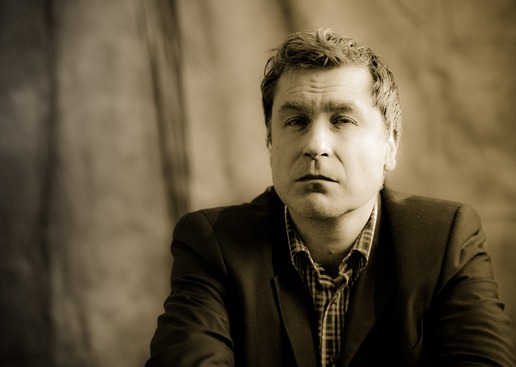
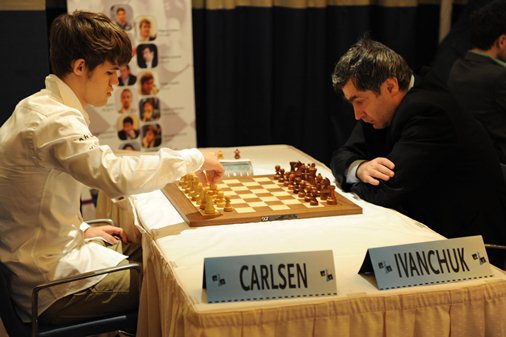
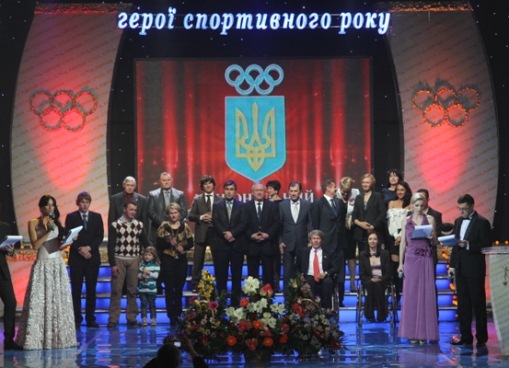
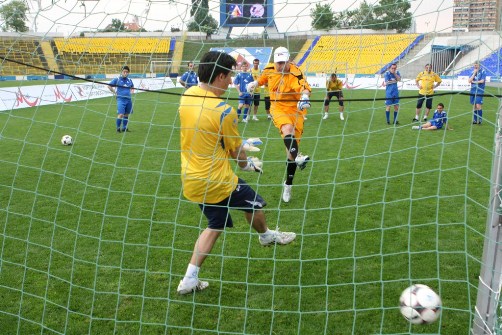
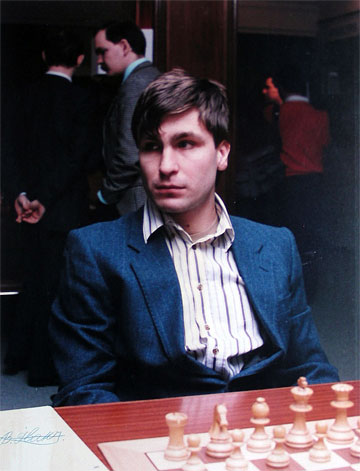

Golden treasury….
A very good read. Thanks for the translation!